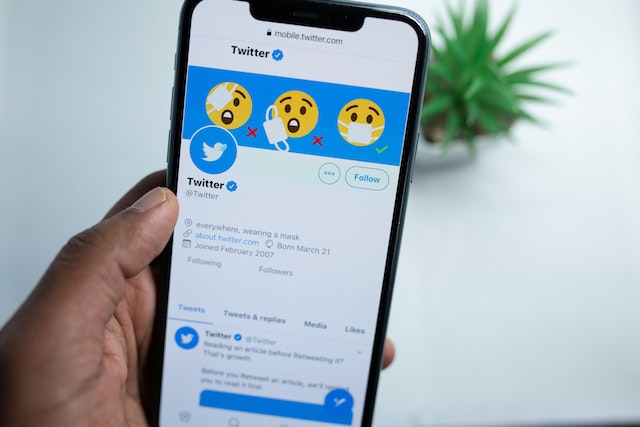How to Ask Someone to be Your Mentor: An Easy Guide
Having a mentor is like having a superpower that makes you grow faster and attain excellence in your personal and professional life! Mentors are great because they help you with advice, care, and profound lessons from their life experiences. In other words, they can offer you direction, help you navigate challenges, and expand your networks.
According to a survey, 97% of employees with a mentor say they get tremendous value from the relationship. Despite its significance, many people struggle with the daunting task of asking someone to be their mentor. But the good news is that this blog can help you out! It will guide you on how to talk to and ask someone to be your mentor.
So if you’re ready to establish a fruitful mentoring relationship, continue reading with care.
Who is a Mentor?
As said already, having a mentor is invaluable in personal and professional growth. Hence, a mentor is an experienced individual who guides and supports you on your journey, sharing their wisdom and expertise. So a mentor is like a wise guide who gives you practical and helpful tips, shares their knowledge, and shows you how to conquer tough obstacles with style.
That said, you should know that the role of a mentor goes beyond providing knowledge. He inspires and motivates, helping you tap into your full potential. On this note, the benefits of having a mentor are so many. But they include accelerated learning, expanded networks, and increased confidence.
That’s why when seeking a mentor, you should look for a knowledgeable person who is approachable and genuinely interested in your success. As Oprah Winfrey said, “A mentor is someone who allows you to see the hope inside yourself.”
The Importance of Finding the Right Mentor
Finding the right mentor can be a game-changer for an individual’s personal and professional growth. A mentor provides specific guidance, wisdom, and support based on his experiences and expertise.
In other words, a mentor is a trusted advisor who can offer you constructive feedback and help you identify blind spots. They can speed up your learning, provide valuable connections, and open doors to opportunities. So with a mentor’s guidance, you can avoid costly mistakes and make informed decisions.
Moreover, having the right mentor can be a source of motivation, encouragement, and accountability. And that can propel you toward success in your chosen path.
Identify Your Goals and Needs
Of course, you first need to identify your goals and needs to find the right mentor for yourself. It is crucial.
You can start by thinking about what you want to do and become in your personal life, job, or career.
Next, you pinpoint specific areas where you need guidance and support. Perhaps you want to improve at being a leader, finding a new job, or talking to people better. Whatever area it is, you must figure out what you need. This knowledge will help you find a mentor with knowledge and experience in what you want to learn.
Often, when you and your mentor have the same goals and needs, they can give you advice that fits your problems exactly. And that will help you grow a lot.
Beyond that, you increase your chances of achieving your goals.
Different Ways to Find Potential Mentors
Now, you’re probably asking yourself: Where can I find a mentor for free?
Beyond a doubt, finding potential mentors can be a transformative step in your personal and professional growth. While the search may seem daunting, there are various avenues to explore. Here are some excellent platforms and ways to find the right mentor:
1. Professional Networks
You can start by asking people you know for help. These individuals include your coworkers, former classmates, or groups related to the field you’re interested in. They can suggest experienced people who can guide you and match your goals and needs.
2. Industry Events
Another avenue you can find a suitable mentor are conferences, workshops, and seminars related to your field. These events let you meet amazing experts who are the best at what they do. And that way, you can engage in conversations, express your interests and inquire about mentorship possibilities.
3. Online Platforms
You can also use websites like LinkedIn, special forums for your industry, or platforms that help you find mentors. Certainly, these different websites can help you find an experienced person who can teach you valuable things.
In other words, you can use these websites to look for mentors who are good at certain things like jobs, skills, and what they know.
4. Research and Informational Interviews
Also, you can have thorough research with professionals you admire in your field. Learn about their backgrounds, accomplishments, and areas of expertise. And afterward, get in touch with them to ask for interviews. That way, you can learn cool things and find out if they could be your mentor.
Narrowing Down and Selecting the Right Mentor
Knowing your goals and the different places to find mentors isn’t the whole story. You have to make a decision and choose the mentor that you want. And to that, you need to follow the steps:
-
Define Your Mentorship Goals
Clearly articulate what you hope to gain from a mentor. Identify the specific skills, knowledge, and guidance you seek. You’ll be amazed at how this clarity will help you streamline your options.
-
Compatibility and Alignment
Another thing you want to consider is the compatibility and alignment of values and goals between you and potential mentors. In all honesty, you should look for individuals who share your passions, understand your aspirations, and can support your growth.
-
Expertise and Experience
Also, assessing the mentor’s expertise and experience in the areas where you need guidance is critical. Look for mentors who have successfully navigated similar challenges and have a track record of achieving their goals.
-
Communication Style
Consider the mentor’s communication style. Having a mentor who can talk to you well and listen is super important to ensure you have a great mentoring relationship. In doing this, you can ask yourself this question: Will this person be able to provide constructive feedback and encouragement?
-
Mutual Respect and Trust
It’s vital to have trust and respect in a mentorship. That’s why you should look for mentors who care about your progress and are ready to help you grow.
There are many examples of how to ask someone to be your mentor. But to explain this point, let’s imagine you’re a marketing professional seeking guidance in digital marketing strategies. You attended a marketing conference where you engaged in conversations with industry leaders. And unfortunately, you met Jennifer, an experienced digital marketer. And from your observation, you see Jennifer loves to share her excitement about new and creative ways to do marketing.
Thus after the conference, you send Jennifer a message on LinkedIn. You tell her how much you admire her work and are interested in learning from her.
To that end, you both scheduled a meeting to discuss your goals and expectations. You find that Jennifer’s experience and expertise perfectly align with her needs.
What’s more? At this point, you can establish a mentorship relationship. That’s because you have built a certain level of trust, communicate with each other, and have common goals.
How to Ask Someone to Be Your Mentor
STEP ONE: BUILD A RELATIONSHIP
In your quest to find a mentor, you must build a relationship with the person before making a formal mentorship request. This foundation helps you build trust, a good relationship, and a shared understanding with the potential mentor.
That said, here are some strategies to build a relationship with a potential mentor:
i) Networking and Engagement
You can attend industry events, conferences, or networking sessions to allow you to meet people who work in the same field as you. You can talk to them in a friendly way, ask them questions about what they do, and share your brilliant ideas.
Hence, you can build connections with potential mentors by actively participating in industry discussions.
ii) Seek Common Ground
Try to find things you have in common with potential mentors. It could be things you both like, goals you want to achieve, or experiences you’ve had. Of course, you can use this as a starting point to start conversations and establish a connection.
iii) Offer Assistance
Of course, you must show a willingness to help and offer your skills or expertise to potential mentors. This way, you display your commitment and build credibility.
iv) Connect Online
Use social media platforms like LinkedIn or professional forums to find and talk to people who could be your mentors. Engage with their content, comment on their posts, and share relevant insights. Often, by doing these, you create familiarity and open the door for further communication.
Once you have established a foundation, nurturing the professional relationship is key. Here are suggestions on how to maintain regular communication:
-
Schedule Regular Check-ins
You can arrange periodic meetings or calls with your potential mentor. This will allow you to discuss progress, seek guidance, and share updates. But in doing this, you should respect their time and come prepared with specific questions or topics.
-
Share Updates and Successes
Keep your mentor informed about your achievements, milestones, and challenges. This way, you allow them to understand your growth and offer tailored advice and support.
-
Seek Feedback and Act on It
Sharing updates and success with your mentor is not an end in itself. You need to request feedback on your progress, projects, or ideas.
And finally, you should act on the feedback you get. This shows that you’re serious about getting better and improving. Of course, when you do that, it shows your mentor that you appreciate and value their help.
-
Express Gratitude
Show appreciation for your mentor’s time, insights, and support. When you say a simple thank-you note or show gratitude while talking to someone, it helps to make the relationship stronger.
Don’t forget, mentorship is a two-way road. You must build a strong foundation by making friends and talking a lot so your mentorship can be successful. If you work hard, talk to potential mentors, and stay in contact, they might agree to be your mentor.
STEP TWO: MAKE YOUR REQUEST
Asking someone to be your mentor is a crucial step in your professional and personal growth. But here are some key considerations you take note of when trying to make the ask:
-
Know the Approach you want to use
There are different approaches you can take when asking someone to be your mentor. They include direct and indirect requests.
-
Direct Request
This approach involves a straightforward and clear ask. You approach the person respectfully and express your admiration for their expertise. Also, you explain why you believe they would be an excellent mentor and how their guidance would benefit you.
-
Indirect Request
Alternatively, you can take a more indirect approach. Look for chances to meet and talk with someone who could be your mentor. You can do this by attending events where people in your field gather, like conferences or meetings.
You can also ask the person you want to be your mentor if you can have an interview with them. Through this meeting (if granted), you’ll learn more about what they do. When you spend time with your mentor and show them that you want to learn from them, you showcase your seriousness and commitment. And once you feel comfortable with them, you can ask if they would be your mentor.
For example, let’s say you are interested in becoming a chef. You could reach out to a professional chef in your community and ask if you could interview them.
During the interview, you can ask questions about their career, favorite dishes, and any advice they have for aspiring chefs. If the chef sees your passion and eagerness to learn, they might agree to be your mentor and guide you on your culinary journey.
-
Selecting the Right Time and Setting
Timing and setting are crucial when making the ask. Of course, you want to choose a time whereby you and the potential mentor are relaxed and have enough time for a meaningful conversation.
As a rule, avoid approaching your potential mentor during busy or stressful periods. Also, select a conducive setting that allows open communication, such as a quiet coffee shop or a private meeting room.
-
Expressing Gratitude and Commitment
When making the ask, you need to express your gratitude and commitment. Express how great the potential mentor is and how they’ve helped your career already.
Besides, you should emphasize your willingness to put in the effort, learn from their guidance, and apply their insights to your growth. Assure them that their time and mentorship will be valued and appreciated.
How to Handle Potential Rejections from A Mentor
Remember, approaching someone and asking them to be your mentor can be a significant commitment for both parties. But be prepared for the possibility of a mentor declining your request due to time constraints or other commitments. If this happens, be nice and show respect, and keep looking for other mentors who share your goals.
Here’s how to navigate potential rejections until you find the right mentor for you:
#1. Understand Possible Reasons
Rejection may occur due to various factors that are beyond your control. The mentor might be too busy, have other plans, or have personal reasons that stop them from being a mentor. In such a case, it’s crucial to remember that doesn’t reflect your worth or potential.
#2. Respond with Grace
If you receive a rejection, respond with grace and gratitude. Express your understanding and appreciation for their consideration. Aside from that, you should avoid becoming disheartened or taking it personally. Replying professionally and respectfully can keep the door open for future changes and ensure people think well of you.
#3. Seek Feedback
Take the opportunity to seek feedback from the potential mentor, if appropriate. Ask them politely if they have ideas for other mentors or things to help you grow. Usually, their insights can provide valuable guidance and help you refine your approach to seeking mentorship.
#4. Persist and Seek Alternatives
Rejection is a natural part of the process. Remember that mentorship is a personal choice. And not every potential mentor will be the right fit. So stay persistent and continue seeking other mentorship opportunities.
You can look around on platforms where professionals hang out or on the Internet to find mentors who understand you.
#5. Learn from Rejections
Use rejections as learning experiences. Reflect on the feedback you received, if any, and identify areas where you can improve. Refine your approach, tailor your requests, and adjust your expectations as necessary. In other words, each rejection brings you closer to finding the right mentor ready to support your growth.
Remember, rejection does not diminish your worth or potential. Stay positive, maintain professionalism, and remain open to new possibilities. Keep trying to find a mentor and change your approach based on feedback. This will help you find the right mentor who will support your growth.
How to Foster a Productive Relationship with a Mentor
Fostering a productive mentorship relationship is essential for personal and professional growth. Of course, building a successful mentorship dynamic is super important, and three things make a big difference.
- First, you need to set clear expectations and goals from the start.
- Secondly, keeping communication open and effective is key.
- And finally, showing respect and taking responsibility are also really important.
By doing these things, mentorship can be excellent and successful!
How to Ask Someone to be your Mentor at Work
Asking someone at your workplace to be your mentor is like asking someone to guide you. Frankly, it’s no different from asking for mentorship in business, entrepreneurship, or any other aspect of life.
- Choose the right person
- Build a rapport
- Express your admiration
- Explain your goals
- Request their mentorship
- Be flexible and open to feedback
- Express gratitude: Regardless of their response, thank them for considering your request and for their time.
That said, in making your request potential at your place of work, you can express your message in person or send a note like this:
Template on How to Ask Someone to be your Mentor at Work
Hi [Mentor’s Name],
I hope you’re doing great. I want to talk to you about something that’s been on my mind. I’ve been watching how you work and handle projects at our company. And I must confess, I’m impressed by how good you are and how well you do.
I’ve been thinking a lot about my career goals and where I want to be in the future. Your knowledge and experience in [specific area] match perfectly with what I want to do. I think having you as a mentor would help me grow professionally.
I’ve always liked how you take on challenges and do a great job. Unarguably, your advice and guidance would be valuable to me as I figure out my career path. I’m excited to learn from your experiences and gain the skills I need to do well in my job.
Would you be willing to be my mentor? I know it would take up your time and commitment, and I appreciate any help you can give. Even if it’s just giving me advice sometimes or checking in with me now and then, I believe your mentorship would make a big difference in my development.
Please let me know what you think about this. I understand if you’re too busy to be my mentor. But looking forward to your mentorship would be a dream come true.
Thank you for thinking about my request, and no matter what you decide, I appreciate everything you do for our team and how you inspire me.
Best regards,
[Your Name]
Final Thoughts
As it’s evident, this blog has explained why finding a mentor is critical for your personal and professional growth. It talks about some essential things like finding the right mentor, nicely asking them, and ensuring the relationship is good for both of you.
Moreover, you’ve learned that having a mentor can change your life by giving you knowledge, new ideas, and support. Why are you waiting? Start now and find a great mentor to help and inspire you on your personal, life, or career journey.








